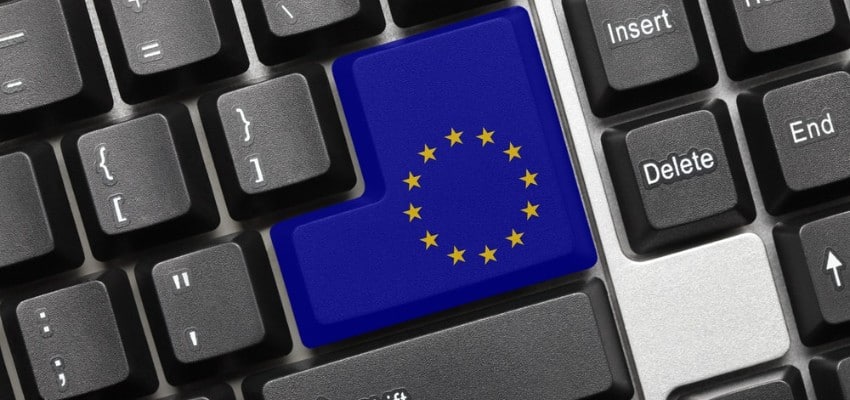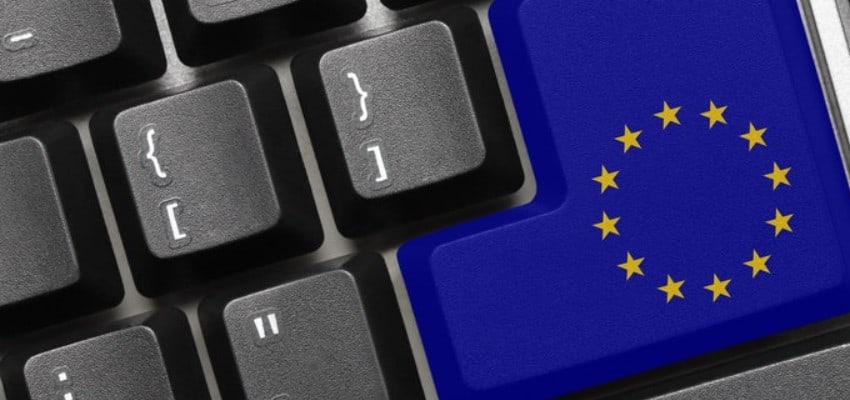|
|
Content Assessment: Safer Spaces? The Digital Services Act: A Provisional Political Agreement
Information - 95%
Insight - 96%
Relevance - 92%
Objectivity - 93%
Authority - 94%
94%
Excellent
A short percentage-based assessment of the qualitative benefit of the press announcement highlighting the provisional political agreement by the European Parliament and Council on the Digitial Services Act.
Editor’s Note: According to the European Parliament, the European Union Digital Services Act (DSA) focuses on creating a safer digital space for digital users and companies, by protecting fundamental rights online. Among the core concerns tackled by this law are the trade and exchange of illegal goods, services and content online and algorithmic systems amplifying the spread of disinformation. The following announcement from the European Parliament highlights the provisional political agreement of the EU Parliament and Council on the landmark rules represented in the DSA. The announcement may be beneficial for cybersecurity, information governance, and legal discovery professionals seeking to understand and prepare for the final approval and implementation of this landmark act.
Press Announcement*
Digital Services Act: Agreement for a Transparent and Safe Online Environment
European Parliament
EU negotiators agree on landmark rules to effectively tackle the spread of illegal content online and protect people’s fundamental rights in the digital sphere.
On Friday, Parliament and Council reached a provisional political agreement on the Digital Services Act (DSA). Together with the Digital Markets Act, the DSA will set the standards for a safer and more open digital space for users and a level playing field for companies for years to come.
More responsible online platforms
Under the new rules, intermediary services, namely online platforms – such as social media and marketplaces – will have to take measures to protect their users from illegal content, goods and services.
- Algorithmic accountability: the European Commission as well as the member states will have access to the algorithms of very large online platforms;
- Swift removal of illegal content online, including products, services: a clearer “notice and action” procedure where users will be empowered to report illegal content online and online platforms will have to act quickly;
- Fundamental rights to be protected also online: stronger safeguards to ensure notices are processed in a non-arbitrary and non-discriminatory manner and with respect for fundamental rights, including the freedom of expression and data protection;
- More responsible online marketplaces: they have to ensure that consumers can purchase safe products or services online, by strengthening checks to prove that the information provided by traders is reliable (“Know Your Business Customer” principle) and make efforts to prevent illegal content appearing on their platforms, including through random checks;
- Victims of cyber violence will be better protected especially against non-consensual sharing (revenge porn) with immediate takedowns;
- Penalties: online platforms and search engines can be fined up to 6% of their worldwide turnover. In the case of very large online platforms (with more that 45 million users), the EU Commission will have exclusive power to demand compliance;
- Fewer burdens and more time to adapt for SMEs: longer period to apply the new rules will support innovation in the digital economy. The Commission will follow closely the potential economic effects of the new obligations on small businesses.
Safer online space for users
- New transparency obligations for platforms will allow users to be better informed about how content is recommended to them (recommender systems) and to choose at least one option not based on profiling;
- Online advertising: users will have better control over how their personal data are used. Targeted advertising is banned when it comes to sensitive data (e.g. based on sexual orientation, religion, ethnicity);
- Protection of minors: platforms accessible to minors will have to take specific measures to protect them, including by fully banning targeted advertising;
- Manipulating users’ choices through ‘dark patterns’ will be prohibited: online platforms and marketplaces should not nudge people into using their services, for example by giving more prominence to a particular choice or urging the recipient to change their choice via interfering pop-ups. Moreover, cancelling a subscription for a service should become as easy as subscribing to it;
- Compensation: recipients of digital services will have a right to seek redress for any damages or loss suffered due to infringements by platforms.
Harmful content and disinformation
Very large online platforms will have to comply with stricter obligations under the DSA, proportionate to the significant societal risks they pose when disseminating illegal and harmful content, including disinformation.
- Very large online platforms will have to assess and mitigate systemic risks and be subject to independent audits each year. In addition, those large platforms that use so-called “recommender systems” (algorithms that determine what users see) must provide at least one option that is not based on profiling;
- Special measures in times of crisis: when a crisis occurs, such as a public security or health threat, the Commission may require very large platforms to limit any urgent threats on its platforms. These specific actions are limited to three months.
Quote
“The Digital Services Act will set new global standards. Citizens will have better control over how their data are used by online platforms and big tech-companies. We have finally made sure that what is illegal offline is also illegal online. For the European Parliament, additional obligations on algorithmic transparency and disinformation are important achievements,” said rapporteur Christel Schaldemose (DK, S&D). “These new rules also guarantee more choice for users and new obligations for platforms on targeted ads, including bans to target minors and restricting data harvesting for profiling.”
Next steps
The text will need to be finalised at technical level and verified by lawyer-linguists, before both Parliament and Council give their formal approval. Once this process is completed, it will come into force 20 days after its publication in the EU Official Journal and the rules will start to apply 15 months later.
From 23 to 27 May, a delegation from the EP’s Internal Market Committee will visit several company headquarters (Meta, Google, Apple and others) in Silicon Valley to discuss in person the Digital Services Act package, and other digital legislation in the pipeline, and hear the position of American companies, start-ups, academia and government officials.
Briefing - Collection of Studies for the IMCO Committee - European Parliament
Additional Reading
- The Digital Services Act: Transformational Digital Regulation from the European Commission
- A Safe Space for Online Users? The European Union’s Digital Services Act
Source: ComplexDiscovery


























